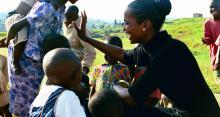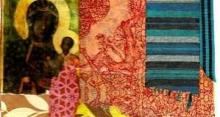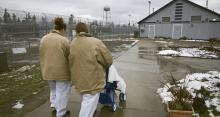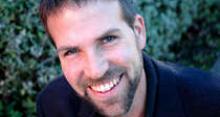Evolving Motherhood
Big Ideas
Leading thinkers and activists share game-changing ideas about motherhood and improving maternal health and women's rights.
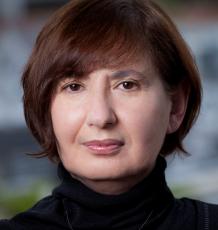
I came to the United States from the Ukraine at 18. Being an immigrant, I got used to feeling at home and yet slightly estranged in many places. No introduction of mine ever skips the question, “So, where are you originally from?”
In my profession as a futurist, however, I’ve increasingly come to see my immigrant experience as an asset. After all, we are all immigrants to the Future, none of us are natives in that land. And today, we are in the early stages of defining a new tapestry of the world. Shaped by technologies we are only beginning to deploy, new levels of knowledge and scientific understanding, and faced with new challenges as a globally connected but endangered planet, the very underpinnings of our society and institutions are being re-shaped in front of our eyes. How we “mother” is also likely to change.
Motherhood, defined as the process of nurturing a child, is a universal concept. However, who performs this function and the tools they use in the process of practicing it are subject to larger social, cultural, and technological forces. Clearly, who performs the mothering function is changing as family structuress are diversifying: there are more single mothers, more men stepping into mothering roles either on their own or in committed relationships, more kids are growing up with multiple mothers or with non-kin serving as mothers.
The tools and expectations of motherhood are also changing. Our general “scientification” of life is increasingly leading to “scientification” of motherhood, i.e. trying to quantify, decode, and program for best mothering outcomes. The definition of what “successful outcomes” are, and the tools we use to create such outcomes, are subject to prevaling cultural norms.
Witness a spate of current critical essays decrying our desire to create kids fit for entering Harvard rather than handling everyday household chores or inveigling American parents for creating the most spoiled generation in history. Similar publications just a decade earlier gave mothers advice on how to prep kids for high SAT scores, that regularly give us rankings of best colleges, and directories of various “enrichment” activities that have cut into time for free play and doing chores.
What does this indicate about what’s in store for motherhood? Motherhood has been and will continue to be in remedial state: while the deepest basics remain constant through generations—love, warmth, nurturing, desire for the child to thrive—the expression of such basics changes as we acquire new sets of knowledge and tools, and our cultural norms shift. Just like remedial education intends to improve reading, writing, and other learning outcomes, in the modern world we are likely to continue the process of remedial mothering—constantly working to improve the practice of motherhood to achieve better outcomes, however these are defined, bringing with us an arsenal of new technologies, tools, and latest scientific discoveries.
For example, only recently doctors advised mothers to sterilize everything and to keep kids in what previous generations would have considered highly sterile environments. Today, with the growing evidence of the importance of bacterial interactions in everything from brain development to healthy immune systems, the new generation of mothers will increasingly be concerned with providing optimally beneficial bacterial environments for their children.
After a generation of parents worried about packing kids’ days with various enrichment activities, the focus is likely to shift to creating opportunities for free play and meandering, which scientists are increasingly finding beneficial in fostering creativity and critical thinking skills. We are living in the world suffused with data—every object, every interaction, every encounter is a piece of data. We are increasingly using this data to de-code how things work. The convergence of big data, growing understanding of how our brains function, and ability to get a fine-grained view of our bodies (from genetics to microbacterial environments), will provide us with new levels of understanding of our children, their health, learning and developmental processes. We will draw on this data to create the next generation of tools for parenting. There will be a new version of “What to Expect When you are Expecting” based on the latest advances in science.
At the same time what we desire for our children is likely to also change, In a world where we are moving away from jobs in institutions—corporations, governments, traditional colleges and universities, in a world in which we can aggregate micro-contributions from large networks of people to create things like Wikipedia or make scientific discoveries, mothers are likely to re-think their hopes for their children. No matter what the next generation of child-rearing theories and practices likely to be, it is also likely to be swept out or substantially adjusted in the face of new knowledge, new discoveries, and new cultural realities.
In the face of dramatic technological and scientific changes, one thing will remain constant—motherhood will always be remedial—as long as scientific and technological progress continues, we will always want to apply the new discoveries to motherhood, in the process tweaking or throwing out what we’ve done before. We will never reach perfection, neither will our children. And that’s a good thing—who wants to live in a perfect world?
Related Content
|
Marie Claudine Mukamabano is the founder and CEO of Kuki Ndiho Rwanda Orphans Support Project, an NGO dedicated to the healing of the lives of the thousands of orphans living in Rwanda today. |
Lenelle Moise's poem leads us though a queer woman's thoughts and internal inquiet about the process of having a child. |
This photo series looks at a unique option offered by Washington State, USA to imprisoned mothers and their children. |
Father and author Jeremy Adam Smith describes how being a father has changed over the years and what we need to call into question in order to redefine fatherhood. |


